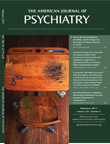Dr. Arnold Gesell had a prescient vision of studying children's mental health problems in a systematic way. Harnessing the emerging power of photography, he authored classic atlases that meticulously documented children's developmental milestones and that proved revolutionary for the early 20th century in which he worked. From the inauspicious beginnings of his 1911 “Psycho-Clinic” was to emerge the first independent department of child and adolescent psychiatry in the country.
In 1948, Gesell retired and was replaced by Dr. Milton Senn, when the name of the growing program was formally changed to Yale Child Study Center. Senn broadened the scope of the center and began one of the first longitudinal studies of young children. As concurrent chairperson of the department of pediatrics, Senn instituted the revolutionary practice of “rooming in” for parturient mothers and their newborns.
Dr. Albert Solnit became the center's third director in 1966. Among his many contributions was the concept of the “vulnerable child,” through which he detailed the long-term psychosocial consequences of prematurity and serious illness in early life. The center developed a close working relationship with the Hampstead Child Therapy Clinic, now the Anna Freud Centre. In the 1960s, Ms. Freud visited the center multiple times and worked with Solnit and law professor Joseph Goldstein to write their seminal book series The Best Interests of the Child, which became the basis for child placement, custody, and adoption principles relevant to this day.
Dr. Donald Cohen, widely recognized as the leading American child psychiatrist of his generation, became the fourth director of the center from 1983 until his untimely death in 2001. During Cohen's tenure, and in close collaboration with Dr. James Leckman, the center developed a rich portfolio of federal grant funding for biologically oriented studies. Within the New Haven community, Cohen fostered widely replicated partnerships with the schools and the police department. In addition, Cohen was deeply committed to activities in child psychiatry around the world and helped transform the center into an international hub of fruitful collaborations.
Dr. John Schowalter, who led the center's child psychiatry residency program for a still-record 27 years, became instrumental, together with Solnit and Cohen, in developing the Associates of the Yale Child Study Center. With the support of this visionary group of philanthropic partners, initially led by Mr. Irving Harris of Chicago, the center expanded its physical infrastructure and endowed 12 professorial chairs.
Under the current leadership of Dr. Fred Volkmar, an internationally recognized authority in the fields of autism and developmental disabilities, the center remains a unique resource that brings together multiple disciplines to further understand the mental health challenges facing children, their families, communities, and society at large.
Beginning as a single room in the New Haven Dispensary a century ago, the Yale Child Study Center continues to find new ways to make the world a better place for children—just as Dr. Gesell had envisioned it would.


